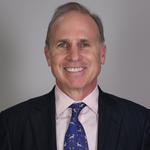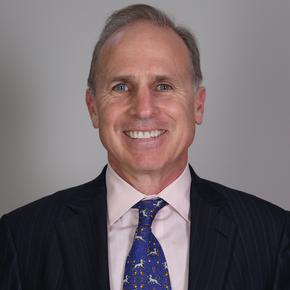Philip Bouchard
- Founder and CEO of TrustedPeer
- 30 years professional experience in Internet infrastructure services, telecommunications, business applications, and healthcare applications
- CEO, COO, and CFO for seven technology companies resulting in five acquisitions
- Director of Finance and on IPO Team for Electronic Arts
- SEAL Team 2 - BUD/S Class 99

- All 7 Best Practices
- Pre-Meeting Discovery Process
- One-on-One Call with Expert
- Meeting Summary Report
- Post-Meeting Engagement

Removing Barriers: Tapping into the Human Capital of Large Enterprises
Key Trends
- A paradigm has shifted: Power no longer accrues to owning and controlling knowledge, but to sharing knowledge that creates value.
Corporations traditionally have been organized into divisions often competitive within the organization for the resources needed to accomplish their goals. Knowledge has been looked at as a source of power and controlling knowledge as a source of leverage within the organization.
But a new paradigm is emerging, especially in early growth stages, is that sharing, rather than owning and controlling, knowledge gives you power. Sharing knowledge generates value by leveraging the company's human capital, which is its greatest asset.
Knowledge sharing generates incremental value from every employee at no additional cost, making each employee more valuable and more productive.- There is a renewed sense of urgency among those responsible for knowledge capture, transfer and reuse within organizations.
In some cases, demographic shifts in the work force are behind this growing interest: The Baby Boomers are retiring, and firms must help long-tenured leaders and experts parse the knowledge they’ve acquired over 20 or 30 years, identify what is truly vital, and pass those nuggets on to the next generation.
However, the breakneck pace of change—especially in technology fields—also contributes to escalating concerns around knowledge transfer. Competitiveness depends on knowledge and innovations moving quickly through the organization, and employees need broad and deep expertise to develop the integrated solutions demanded by customers.
At the same time, new technologies make it increasingly difficult to pinpoint critical knowledge among the masses of data and information available.
Source: KM in 2016 and Beyond: Questions and Predictions – by Dr. Carla O’Dell and Lauren Trees, APQC- Senior internal experts are retiring or leaving for startups or competitors faster than new experts are being developed.
Why this lack of people with 10, 15, or 20 years of experience ready to take the helm? Many technically focused industries went on hiring binges during high-growth eras, followed by layoffs and lulls in hiring during downturns.
To further contribute to the problem, those laid off may have left their industries or gone to startups and are no longer available to rehire. This has created “lumpiness” in the talent pool when it comes to tenure and experience.
Heretofore, this gap had not reached crisis proportions because employees nearing retirement have often been induced to stay on longer by incentives, declines in their retirement portfolios during the last recession, or both.
With the economic recovery, cracks in this stop-gap are starting to emerge. The current pool of experts is spread thin, and there simply aren’t enough mid-career employees ready to step into their shoes.
Source: How Smart Leaders Leverage Their Experts - by Carla O'Dell and Lauren Trees - APQC Report, 2014- New entrants to the workforce place high value on collaboration and the ability to reach out and develop relationships with internal experts.
Recent college graduates have high expectations for collaboration, and when put in a setting where they have few contacts, they immediately perceive the benefit of expertise locators and social platforms that help them connect with experts and form relationships with their peers.
Because they are new to the organization, they are not yet invested in existing tools and processes.
How Smart Leaders Leverage Their Experts - by Dr. Carla O'Dell and Lauren Trees - APQC Report, 2014- Organizations are focusing more attention on newcomers while investing less on the more urgent need to develop mid-career professionals.
Organizations are focusing more attention on newcomers while investing less to develop mid- career professionals than the urgency led us to expect. . . Fifty percent of our audience reports that their organizations have significant or fully integrated efforts to support learning and development for novices, whereas only 37 percent have similar initiatives in place for mid-career professionals. Many - 42 percent - say they see a smattering of activity to develop nex’perts into experts, but no overarching strategy guides and sustains these efforts.
It is possible that the type of specialized knowledge mid-career employees need does not lend itself to an integrated approach. However, we suspect a different reason: Whereas the need to bring new-hires up to competency is a broad, obvious challenge recognized by both HR and business leaders, the gravity of the nex’pert shortage is clear only to those who fully understand the knowledge domains and work processes in each corner of the organization.
How Smart Leaders Leverage Their Experts - by Dr. Carla O'Dell and Lauren Trees - APQC Report, 2014- Knowledge mapping has emerged as a powerful tool to inventory an organization’s critical knowledge and pinpoint areas that may be at risk.
In many cases, the simple act of creating a knowledge map reveals weak links and bottlenecks in the flow of knowledge. By articulating exactly how knowledge moves through the organization, teams can identify improvement opportunities and make targeted adjustments to ensure that the right knowledge reaches the right people at the right point in the process.
Source: Knowledge Mapping: An APQC Overview - by APQC, 2015.- Cognitive computing will bring big changes to knowledge management.
Cognitive computing tools—adaptive and interactive systems that enable computers to handle more complex, context-driven problems usually reserved for human intelligence—have the potential to profoundly change how subject matter experts function and make decisions.
Even if a problem still requires the tacit knowledge and reasoning power of a human (and many will), machine learning may be able to surface the most applicable content, data sets, or experts to support decision making in a given scenario. In either case, the hope is that employees will be able to spend less time searching for knowledge and more time learning from and using it.
Source: Preparing for the Future of Knowledge Management - APQC, 2015.

